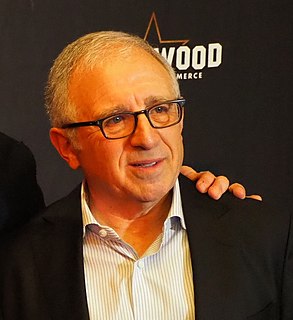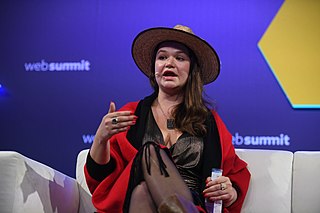A Quote by Irving Azoff
History shows fans want consolidation; you see it across the web every place. The big players are people like Google, Amazon, eBay, Facebook.
Related Quotes
And I know that sounds outrageous, but it's true. Such monopolies as Google, Facebook, Amazon, Apple are trying to stay with us from the moment that we wake up in the morning until the moment that we go to bed at night. They want to become our personal assistants. They want to become the vehicles to deliver us news, entertainment, to track our health. They want to obey our every beck and call through Amazon Alexa and Google Home.
Facebook's a wonderful, incredible way to bring humanity together. They've brought together 2 billion people in the largest fictional family in history. So young people are starting to empathize with each other through Facebook across the globe. This is wonderful. However, when everyone needs Facebook because it's so successful that everyone's on it, then it starts to look like a global public utility, a public good. Same with Amazon.
Why shouldn't people be able to buy movie tickets on Amazon? Or Google or Flixster, or IMDb? I don't care who you have a relashionship with. This isn't about Fandango or MovieTickets. This is about you. Where do you buy stuff? Are you an Amazon Prime member? Then I want to be on Amazon Prime. Are you a Yahoo guy? Then I want to sell on Yahoo. Are you a Google guy? Then I want to sell tickets on Google.
On Amazon, you find retailers that want Amazon to do part of their services. Those, you don't find to the same degree on Google Shopping. On Google Shopping, you find sort of the bigger brands, those who want to have the customer relationship themselves - the data, the payment details, the search patterns.
Even companies that do big business online struggle to be noticed by Google users. The Web, after all, is home to some 120 million Internet domains and tens of billions of indexed pages. But every company, big or small, can draw more Google traffic by using search-engine optimization - SEO, for short.
We see Google experimenting in so many places outside of its core search and advertising business, whether that's bringing broadband Internet to the world or funding an entirely separate company to pursue solutions to disease and mortality. Amazon's one of the few other companies that thinks as big as Google does.
What makes the Amazon-Whole Foods deal so problematic is that they are going into an industry with large infrastructure, brick-and-mortar cost, and seeking to build consolidation where we already suffer from consolidation. It's not like Walmarts and Targets have been good for wages or local grocery stores or niche producers.


































